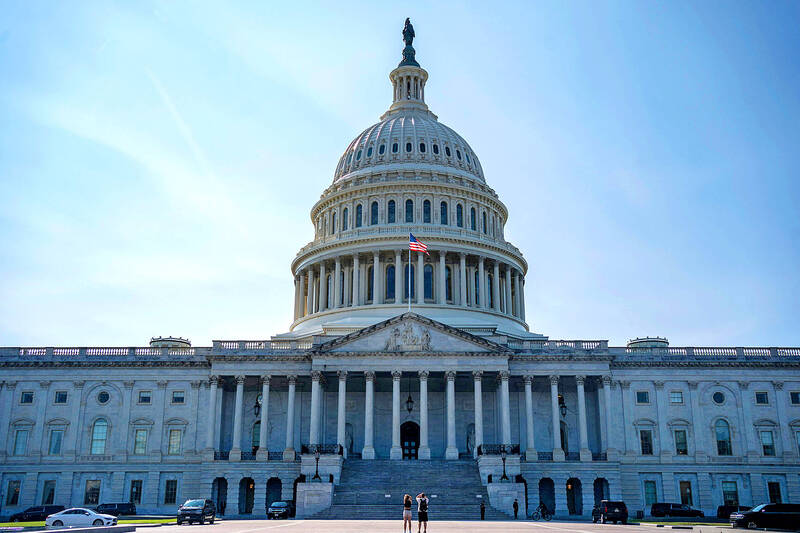《TAIPEI TIMES》 US Pacific bill aims to bolster cooperation with Taiwan

The US Capitol is pictured in Washington on Monday. Photo: AFP
/Staff writer, with CNA
The Pacific Partnership Act, unanimously passed by the US House of Representatives on Monday, aims to bolster cooperation with Taiwan and the Pacific Islands Forum (PIF), its backers said.
Introduced by US Representative Ed Case early this year, the bill emphasizes the importance of US collaboration with key allies and partners, including Taiwan, Australia, Japan, New Zealand and South Korea, as well as regional organizations such as the PIF.
Unlike other bills introduced recently, such as the Taiwan Conflict Deterrence Act, the Pacific Partnership Act does not explicitly target China.
Instead, it requires the US president and the US secretary of state to develop a Pacific partnership strategy, focusing on the region’s vulnerabilities to threats such as natural disasters, foreign military actions, economic coercion and corruption.
The PIF, which is mentioned multiple times in the Pacific act, has become a diplomatic flashpoint between Taiwan and China. The south Pacific has long been a contested area of influence for both nations, with the PIF as a critical platform.
Deputy Minister of Foreign Affairs Tien Chung-kwang (田中光) last month attended the forum, as did Chinese Special Envoy for Pacific Island Countries Affairs Qian Bo (錢波).
The Solomon Islands sought to block Taiwan’s participation in future forums, reports said.
A draft communique reaffirming Taiwan’s status was reportedly removed due to pressure from China.
During discussions on the Pacific Partnership Act, US Representative Amata Coleman Radewagen said that China’s influence was growing in the region, pointing to its 2022 security agreement with the Solomon Islands.
The bill calls for coordinated US efforts with allies to ensure effective aid programs in the Pacific without duplication, Radewagen said.
Although the bill has cleared the House, it faces a narrow window for approval by the US Senate, given US presidential elections in November and a congressional recess.
新聞來源:TAIPEI TIMES





















